NEW YORK (AP) — A draft budget proposal circulating among federal officials would dramatically deepen cuts at the nation's top health agency, eliminating some public health programs entirely and serving as a roadmap for more mass firings.
The document suggests a cut in the U.S. Department of Health and Human Services' discretionary spending by as much as one-third, or tens of billions of dollars, according to public health experts familiar with its contents.
Though it’s preliminary, the draft gives an indication of the Trump administration’s priorities as it prepares its 2026 fiscal year budget proposal to Congress. It comes amid massive funding and job cuts already underway across much of the federal government.
The HHS plan lays out a reorganization of its many agencies and offices and calls for eliminating or whittling away dozens of programs. Among them: Head Start, a development program for more than half a million of the country's neediest children, as well as programs focused on teen pregnancy and family planning, Lyme disease, and global health.
The National Institutes of Health — the world’s largest funder of biomedical research, and long called the government’s crown jewel – would see its budget shrink to $27.3 billion, from $48.5 billion. Beyond the monetary cuts is a proposed restructuring, reducing the NIH's 27 institutes and centers to eight. Many institutes that specialize in distinct diseases — involving, for example, the heart and lungs, diabetes, and skeletal and skin conditions — would be combined.
NIH-funded research has played a part in the development of most treatments approved in the U.S. in recent years, and until recently, had strong bipartisan support. It’s not clear whether Congress would go along with the proposed changes. During the first Trump administration, Congress rejected a major cut to NIH’s budget.
“I just have not heard anybody say, ‘We wish the government would spend less money trying to cure cancer or trying to deal with Alzheimer’s,’” said Jeremy Berg, a University of Pittsburgh professor and former director of an NIH institute.
Yet that’s what the $20 billion budget cut will mean, he said, adding that restructuring will cost time and money, too.
The budget of the Food and Drug Administration would be cut by nearly half a billion dollars, to $6.5 billion, in part by eliminating some longtime agency responsibilities and shifting them to states. For example, the FDA would no longer handle routine food inspections. It already contracts with state inspectors for some of that work and would now do so to cover “100 percent of all routine foods,” according to the document.
The Centers for Disease Control and Prevention's core budget would be slashed to about $5 billion, from more than $9 billion, with a number of programs eliminated and some transferred into a proposed new agency to be called the Administration for a Healthy America.
The cuts include the complete elimination of the agency's National Center for Chronic Disease Prevention and Health Promotion, which had 1,000 employees at the beginning of this year. That center houses CDC programs on adolescent health, reproductive health, cancer prevention, heart disease and stroke prevention, and smoking prevention, as well as nutrition, physical activity and obesity.
The draft was not officially released or confirmed by the Trump administration, and it’s not clear what will make it into the final budget proposal. “But it’s an important indication about what the administration is thinking about,” said David Harvey, executive director of the National Coalition of STD Directors, an association that represents people running health department programs to track and prevent sexually transmitted infections. “We are taking it very seriously.”
The proposal was first reported by The Washington Post. The Associated Press saw a copy of the 64-page document, dated April 10.
The draft is the result of discussions between HHS and the White House Office of Management and Budget. It's called a “passback” document — it's what OMB passed back to HHS after both had input.
An HHS spokesman did not respond to an AP request for comment Thursday.
AP reporters Lauran Neergaard and Matthew Perrone in Washington, D.C., contributed to this report.
The Associated Press Health and Science Department receives support from the Howard Hughes Medical Institute’s Science and Educational Media Group and the Robert Wood Johnson Foundation. The AP is solely responsible for all content.
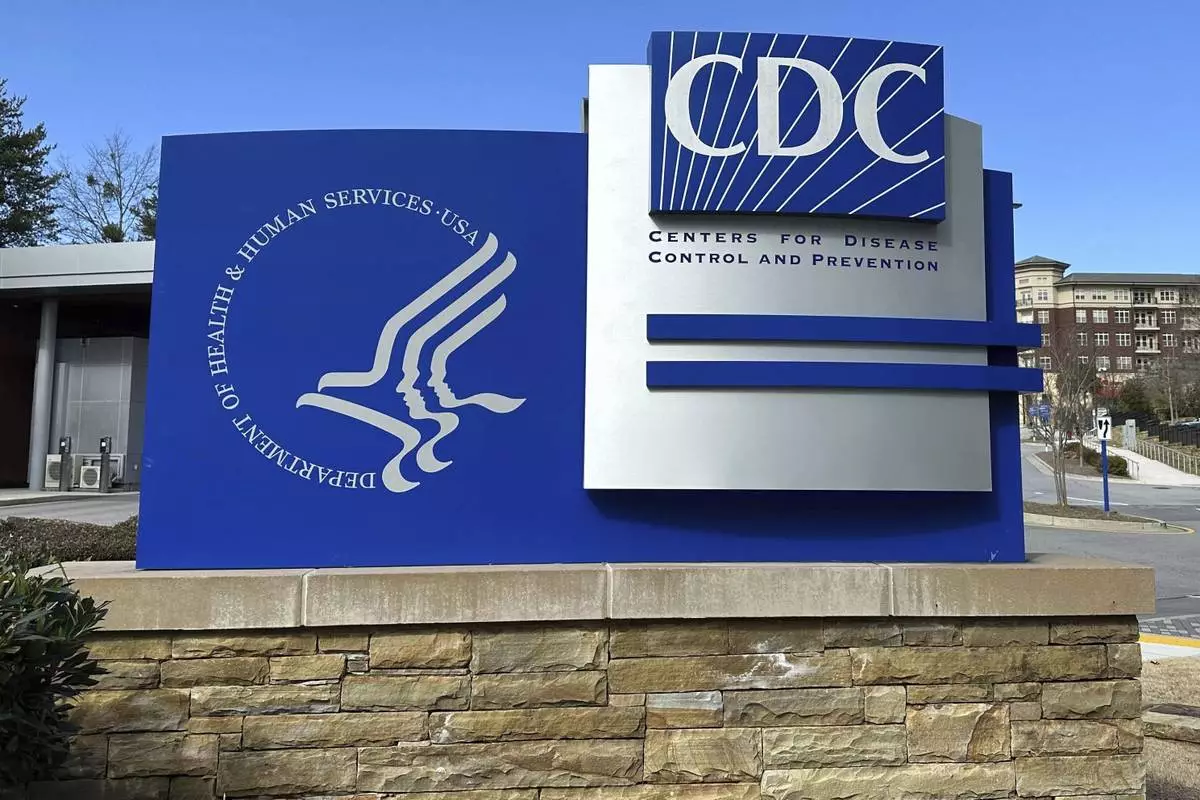
FILE - A sign stands at an entrance to the main campus of the Center for Disease Control and Prevention (CDC) in Atlanta, Georgia, Friday, Feb. 14, 2025. (AP Photo/Jeff Amy, File)
A federal judge on Thursday barred the Trump administration from deporting any Venezuelans from South Texas under an 18th-century wartime law and said President Donald Trump's invocation of it was “unlawful.”
U.S. District Court Judge Fernando Rodriguez Jr. is the first judge to rule that the Alien Enemies Act cannot be used against people who, the Republican administration claims, are gang members invading the United States. Rodriguez said he wouldn't interfere with the government's right to deport people in the country illegally through other means, but it could not rely on the 227-year-old law to do so.
“Neither the Court nor the parties question that the Executive Branch can direct the detention and removal of aliens who engage in criminal activity in the United States,” wrote Rodriguez, who was nominated by Trump in 2018. But, the judge said, "the President’s invocation of the AEA through the Proclamation exceeds the scope of the statute and is contrary to the plain, ordinary meaning of the statute’s terms.”
In March, Trump issued a proclamation claiming that the Venezuelan gang Tren de Aragua was invading the U.S. He said he had special powers to deport immigrants, identified by his administration as gang members, without the usual court proceedings.
"The Court concludes that the President’s invocation of the AEA through the Proclamation exceeds the scope of the statute and, as a result, is unlawful,” Rodriguez wrote.
The Trump administration slammed the ruling.
“The Trump administration is committed to unapologetically using every lever of power endowed to the executive branch by the Constitution and Congress to deliver on this mandate, and we are confident that we will ultimately prevail for the American people.,” White House spokesman Kush Desai said in a statement.
The chair of the Congressional Hispanic Caucus, Rep. Adriano Espaillat, D-N.Y., said in a statement the judge had made clear “what we all knew to be true: The Trump administration illegally used the Alien Enemies Act to deport people without due process.”
The Alien Enemies Act has only been used three times before in U.S. history, most recently during World War II, when it was cited to intern Japanese-Americans.
The proclamation triggered a flurry of litigation as the administration tried to ship migrants it claimed were gang members to a notorious prison in El Salvador.
Rodriguez’s ruling is significant because it is the first formal permanent injunction against the administration using the AEA and contends the president is misusing the law. "Congress never meant for this law to be used in this manner,” said Lee Gelernt, the ACLU lawyer who argued the case, in response to the ruling.
Rodriguez agreed, noting that the provision has only been used during the two World Wars and the War of 1812. Trump claimed Tren de Aragua was acting at the behest of the Venezuelan government, but Rodriguez found that the activities the administration accused it of did not amount to an invasion or “predatory incursion,” as the statute requires.
“The Proclamation makes no reference to and in no manner suggests that a threat exists of an organized, armed group of individuals entering the United States at the direction of Venezuela to conquer the country or assume control over a portion of the nation,” Rodriguez wrote. “Thus, the Proclamation’s language cannot be read as describing conduct that falls within the meaning of ‘invasion’ for purposes of the AEA.”
If the administration appeals, it would go first to the New Orleans-based 5th U.S. Circuit Court of Appeals. That is among the nation’s most conservative appeals courts and it also has ruled against what it saw as overreach on immigration matters by both the Obama and Biden administrations. In those cases, Democratic administrations had sought to make it easier for immigrants to remain in the U.S.
The administration, as it has in other cases challenging its expansive view of presidential power, could turn to appellate courts, including the U.S. Supreme Court, in the form of an emergency motion for a stay pending an appeal.
The Supreme Court already has weighed in once on the issue of deportations under the AEA. The justices held that migrants alleged to be gang members must be given “reasonable time” to contest their removal from the country. The court has not specified the length of time.
It’s possible that the losing side in the 5th Circuit would file an emergency appeal with the justices that also would ask them to short-circuit lower court action in favor of a definitive ruling from the nation’s highest court. Such a decision likely would be months away, at least.
The Texas case is just one piece of a tangle of litigation sparked by Trump's proclamation.
The ACLU initially filed suit in the nation's capital to block deportations. U.S. District Judge James E. Boasberg issued a temporary hold on removals and ordered the administration turn around planes that had left with detainees headed to El Salvador, a directive that was apparently ignored. Later, the Supreme Court weighed in.
The justices stepped in again late last month with an unusual postmidnight order halting deportations from North Texas, where the ACLU contended the administration was preparing for another round of flights to El Salvador.
Riccardi reported from Denver. Associated Press writers Lindsay Whitehurst and Mark Sherman contributed to this report.
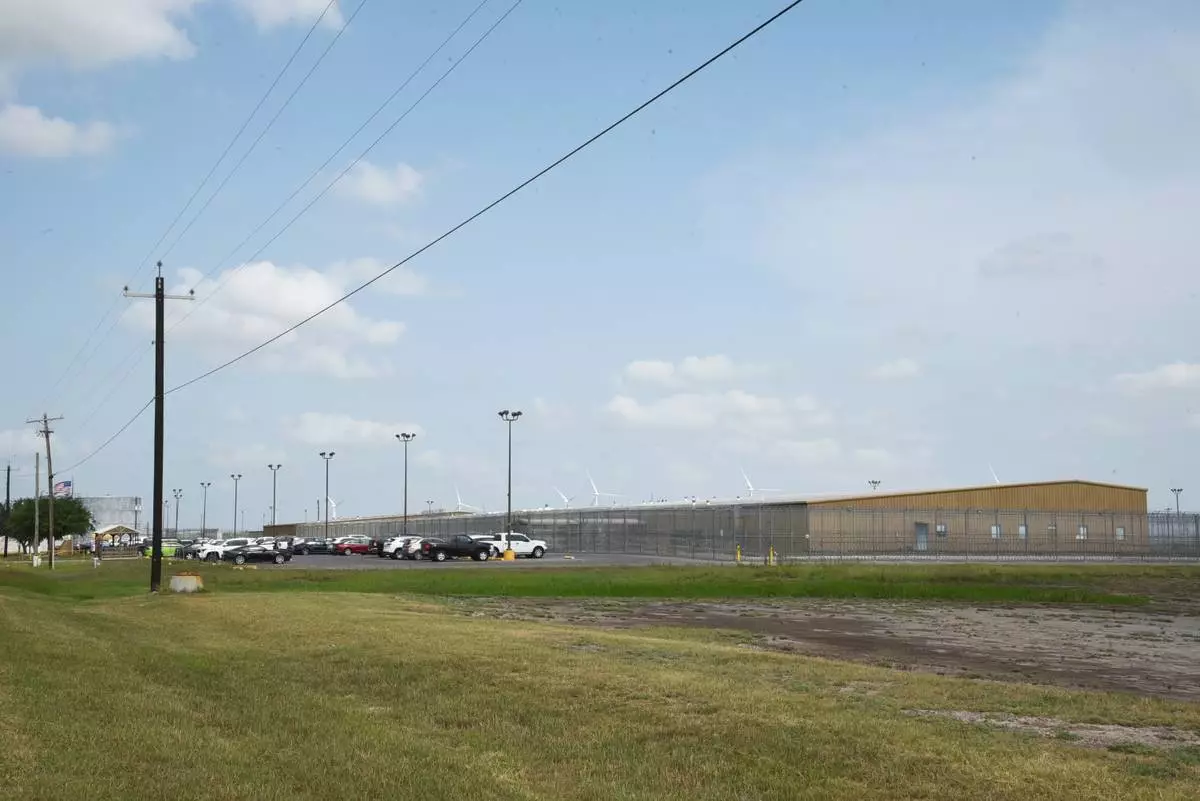
The El Valle Detention Center in Raymondville, Texas is pictured, Thursday, May 1, 2025, after a federal judge in the district barred the Trump administration from deporting any Venezuelans at the south Texas detention center under the Alien Enemies Act, an 18th-century wartime law. (AP Photo/Valerie Gonzalez)
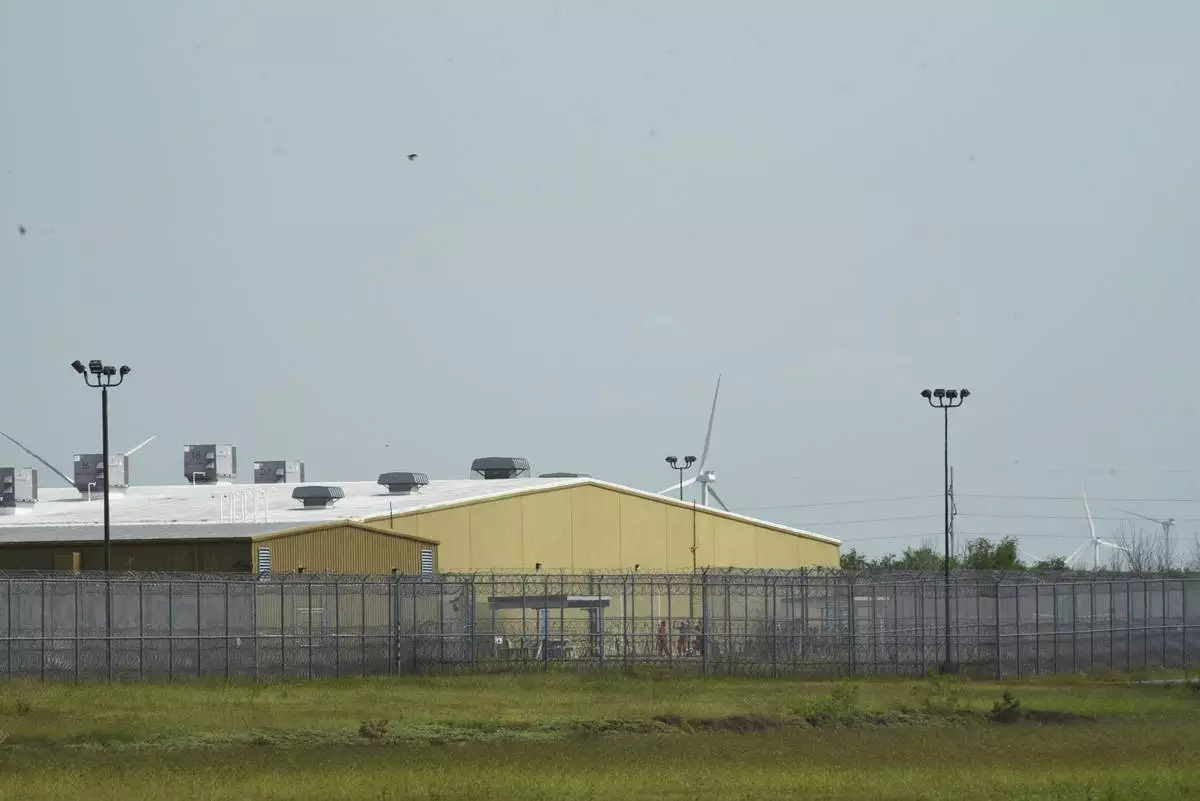
Detainees held at El Valle Detention Center in Raymondville, Texas are seen outside briefly, Thursday, May 1, 2025, after a federal judge in the district barred the Trump administration from deporting any Venezuelans from South Texas under the Alien Enemies Act, an 18th-century wartime law. (AP Photo/Valerie Gonzalez)
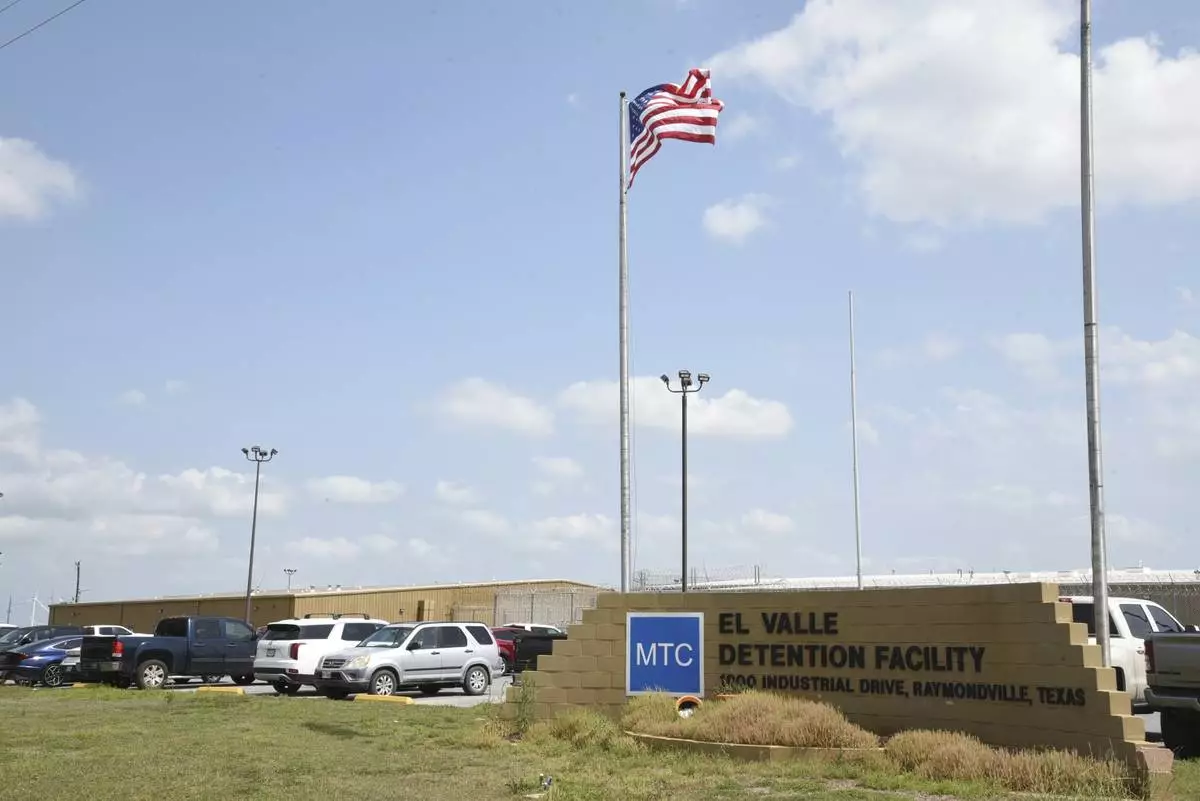
The El Valle Detention Center in Raymondville, Texas is pictured, Thursday, May 1, 2025, after a federal judge in the district barred the Trump administration from deporting any Venezuelans at the south Texas detention center under the Alien Enemies Act, an 18th-century wartime law. (AP Photo/Valerie Gonzalez)
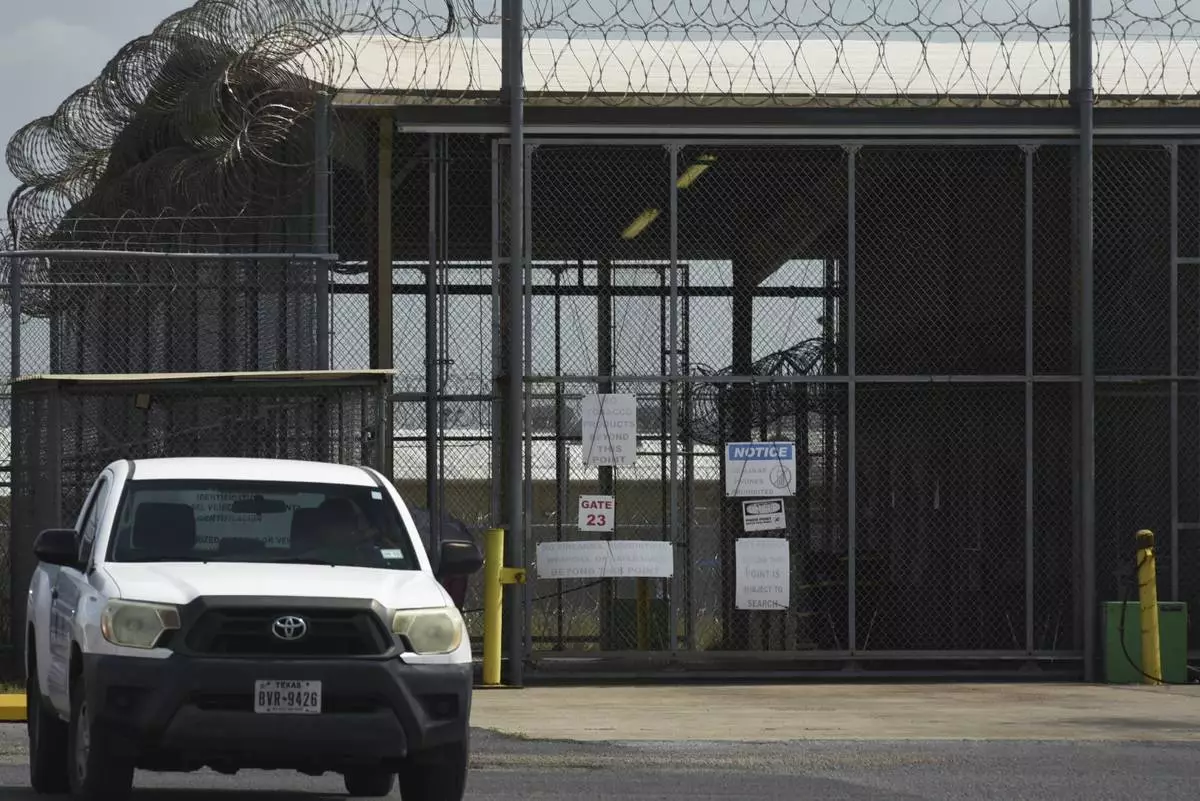
The El Valle Detention Center in Raymondville, Texas is pictured, Thursday, May 1, 2025, after a federal judge in the district barred the Trump administration from deporting any Venezuelans at the south Texas detention center under the Alien Enemies Act, an 18th-century wartime law. (AP Photo/Valerie Gonzalez)
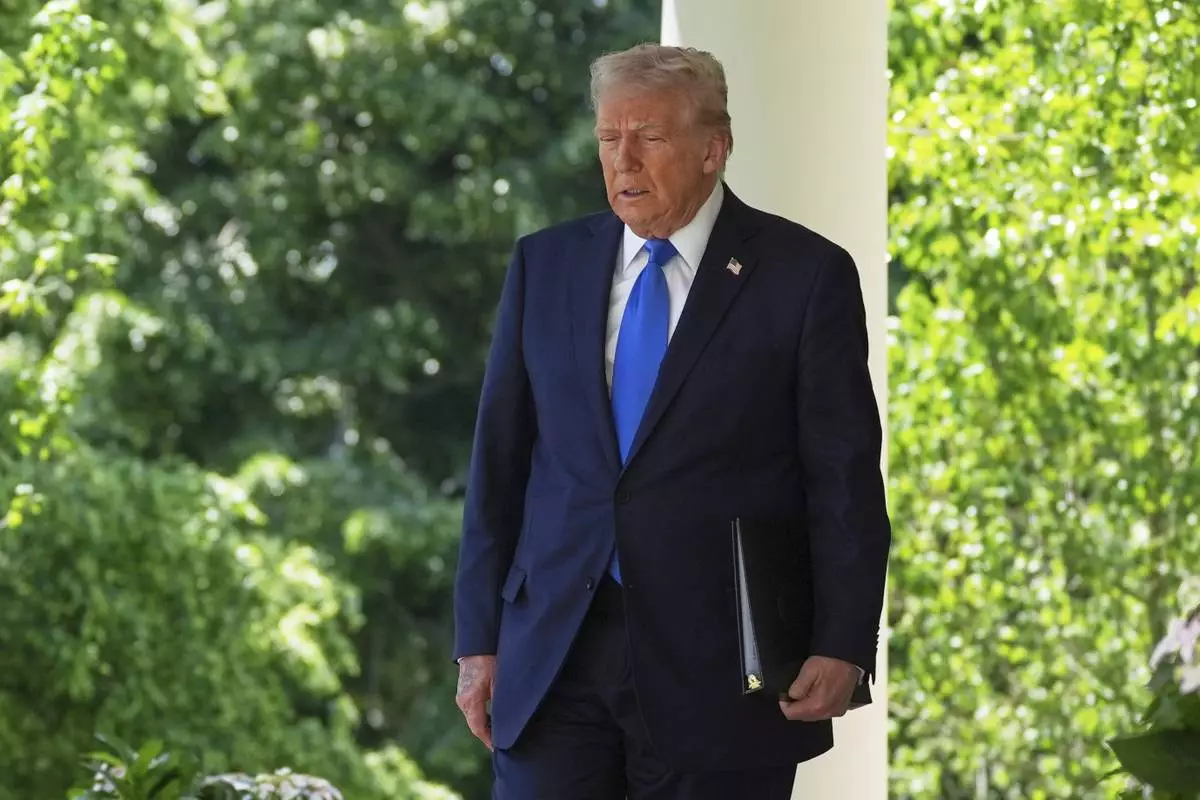
President Donald Trump arrives to speak during a National Day of Prayer event in the Rose Garden of the White House, Thursday, May 1, 2025, in Washington. (AP Photo/Evan Vucci)























































